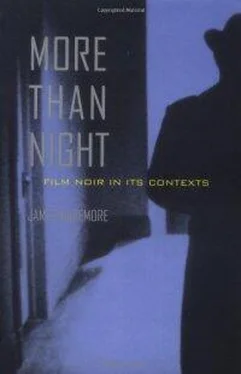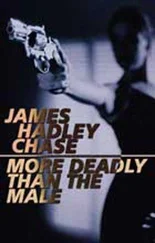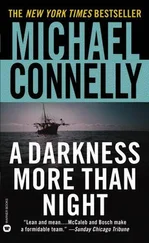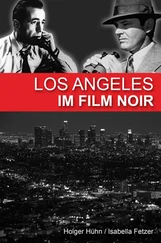Pulp authors were paid so little that they usually specialized in a kind of automatic writing. By contrast, Hammett was a painstaking craftsman, and he became a fairly well paid star. Together with fellow Black Mask writer Carroll John Daly, he seems to have "invented" the tough detective sometime around 1923, in clear reaction against the amateur, puzzle-solving sleuths descended from Poe and Sir Arthur Conan Doyle. In keeping with the general atmosphere of Black Mask, his early stories and novels have as much speed as a Keystone Cops movie and more dead bodies than an Elizabethan tragedy. Sometimes the hero's toughness is exaggerated to the point of burlesque: at one point in Red Harvest (1929), the Continental Op spends all night drinking gin with a blond floozy, takes a cold bath, and has a fight with a killer, whom he overpowers and hauls to the police; he then takes another cold bath and has a fight with two killers, knocking one out and beating the other to the draw; soon afterward, having been grazed on the wrist by a stray bullet, and without even the benefit of another cold bath, he captures an escaped convict and solves a murder mystery that has baffled the local police for years.
But Hammett also had high literary aspirations and serious political convictions. Red Harvest vividly describes corruption in the Wild West during a period of murderous labor struggles, White House scandals, and Prohibition-style gangsterism; never overtly tendentious, it is nonetheless a deadpan exposé of union busting and police violence, filled with cataclysmic bloodshed and raw exploitation of the weak by the strong. ths title is a pun, referring not only to gory violence but also to the potential rise of the Communist International. Equally important, its protagonistthe fat, fortyish, but incredibly tough Continental Opis quite different from the hypermasculine figures on pulp covers, and from the sort of hero that Black Mask editor Joseph T. "Cap" Shaw seems to have imagined for his readers. Shaw was a man of action who clearly had a great deal to do with the birth of hard-boiled fiction; in his editorial statements, however, he sounded like a disciple of Teddy Roosevelt. The ideal consumer of Black Mask, he wrote, "is vigorous-minded, hard, in a square man's hardness; hating unfairness, trickery, injustice, cowardly underhandedness; standing for a square deal and a fair show in little or big things . . . ; not squeamish or prudish, but clean, admiring the good in man and woman; not sentimental in a gushing sort of way, but valuing true emotion . . . and always pulling for the right guy to come out on top." 21In contrast, Hammett's Op is a faceless employee of a factory (more like an actual reader or writer of the pulps), and the violence he experiences makes him feel "blood simple." At one point, he thinks he might even have stabbed a woman while he was drunk or drugged.
Throughout the novel, Hammett reveals a sophisticated awareness of current literary trends. From the first sentence ("I first heard Personvillc called Poisonville by a red-haired mucker named Hickey Dewey in the Big Ship in Butte"), it is clear that he is making art out of the vernacular. All of his later protagonists would speak in this unorthodox style, and they bring a new voice to the detective story. It isn't quite the voice of Reason, as with Dupin or Holmes, because it has less to do with solving puzzles than with exposing falsehood or naïveté; nor is it quite the voice of Metaphysics or Morality, as with Father Brown, because Hammett is skeptical of absolutes and his heroes are not virtuous. It sounds more like the voice of Male Experience, addressing seductive women or mendacious crooks after a period of knowing silence. When an aging capitalist in Red Harvest tells the Op that he wants a "man" to "clean this pigsty of a Poisonville for me, and to smoke out the rats, little and big," the Op replies, ''What's the use of getting poetic about it? If you've got a fairly honest piece of work to be done in my line, and you want to pay a decent price, maybe I'll take it on." When Brigid O'Shaunnessy in The Maltese Falcon tells Sam Spade that he can't turn her over to the police because he loves her, he comments, "But I don't know what that amounts to. Does anyone ever? . . . Maybe next month I won't. . . . Then I'll think I played the sap." Such a voice can't be taken in by abstract appeals to morality or even love, and while it usually situates itself on the side of the Law, it is too honest to give the usual reasons for being there. As Ned Beaumont says in The Glass Key, "I don't believe in anything.'' 22
Interestingly, Hammett was a writer of verse as well as detective stories, and before turning to pulp fiction he published a story and an essay in H. L. Mencken's Smart Set, the most sophisticated "little magazine" in America, which also featured work by James Joyce and the leading modernist authors. Although Hammett's politics were always leftish, in some ways he was exactly the kind of writer Mencken admired: he reacted against the vaguely "feminine" tone of 1890s aestheticism by introducing a profound skepticism into realist narrative, and he stripped literary language of what Pound and others called "rhetoric." The only difference between Hammett and the high modernists was that he applied an emerging sensibility to popular adventure stories, attacking bourgeois culture from "below" rather than from above.
Actually, neither Hammett nor pulp fiction was quite so low on the cultural scale as historians usually suggest. Black Mask had been founded by Mencken and George Nathan in 1920 as a way of supporting The Smart Set, and it was a more respected journal than Mencken himself allowed (even Woodrow Wilson was a subscriber). Red Harvest appeared there in installments, at a time when "Cap" Shaw was trying to boost the literary reputations of his writers by having them experiment with longer forms. Hammett immediately submitted the manuscript of his novel to the Alfred A. Knopf company, where Mencken and Nathan were valued authors, and in an accompanying letter he pointed out his former connection with The Smart Set. The manuscript was read by Blanche Knopf, one of the most astute editors of the period, who was the leader of a modernist literary salon in New York. Knopf immediately recognized Hammett's talent, but she thought that "so many killings on a page . . . make the reader doubt the story." 23Hammett obligingly dropped two dynamitings and a tommy-gun attack, and in response to Knopf's query about his future plans, wrote that he had hopes of "adapting the stream-of-consciousness method, conveniently modified, to a detective story." He also remarked, "I'm one of the fewif there are any morepeople moderately literate who take the detective story seriously. . . . Some day somebody's going to make 'literature' of it (Ford's The Good Soldier wouldn't have needed much altering to have been a detective story), and I'm selfish enough to have my hopes" (quoted in Johnson, 72).
Blanche and Alfred Knopf were the publishers of several important American novelists, including William Faulkner and Willa Cather; together with Mencken, they were also key figures in the transmission of European literary modernism to the United States. Over the next two decades, they gave their imprimatur to hard-boiled writing, developing the careers of Hammett, James M. Cain, and Raymond Chandler and eventually piquing the interest of the movie studios. By this means, Hammett joined the main current of American literature; he never wrote the stream-of-consciousness novel he planned, but within a year of submitting Red Harvest, he told Blanche Knopf that he had borrowed part of the plot from Henry James's Wings of the Dove to complete The Maltese Falcon (1930), the book that firmly established his reputation as a serious author.
Читать дальше












